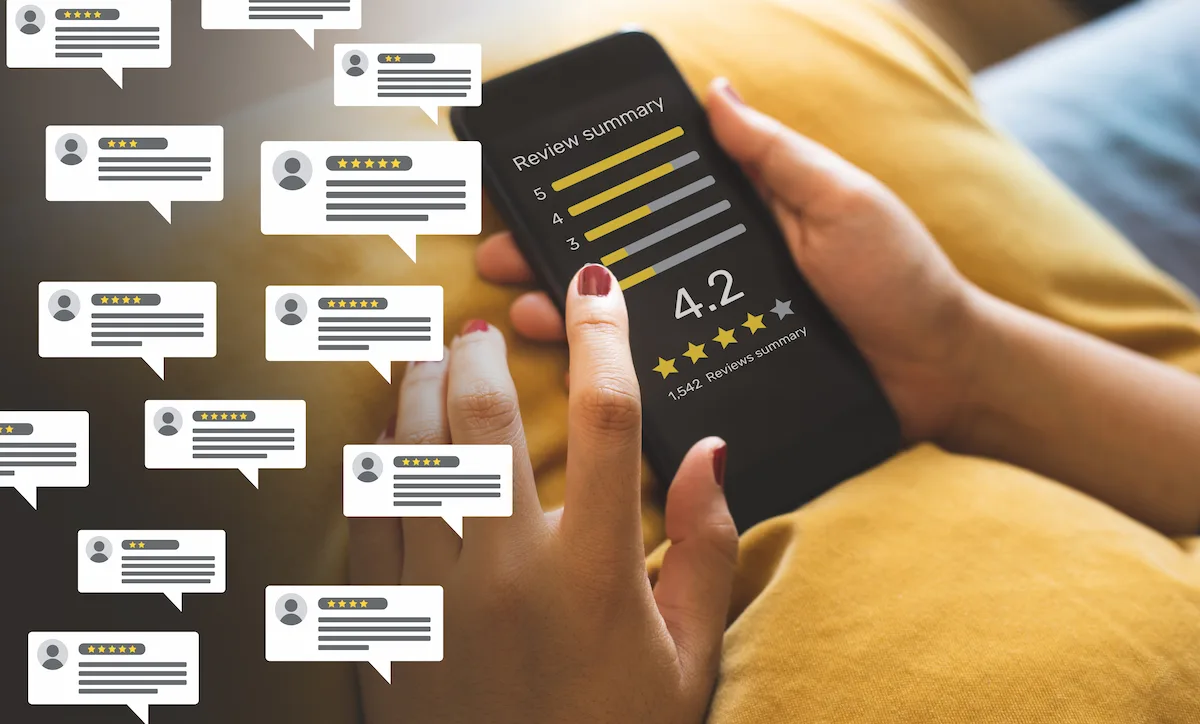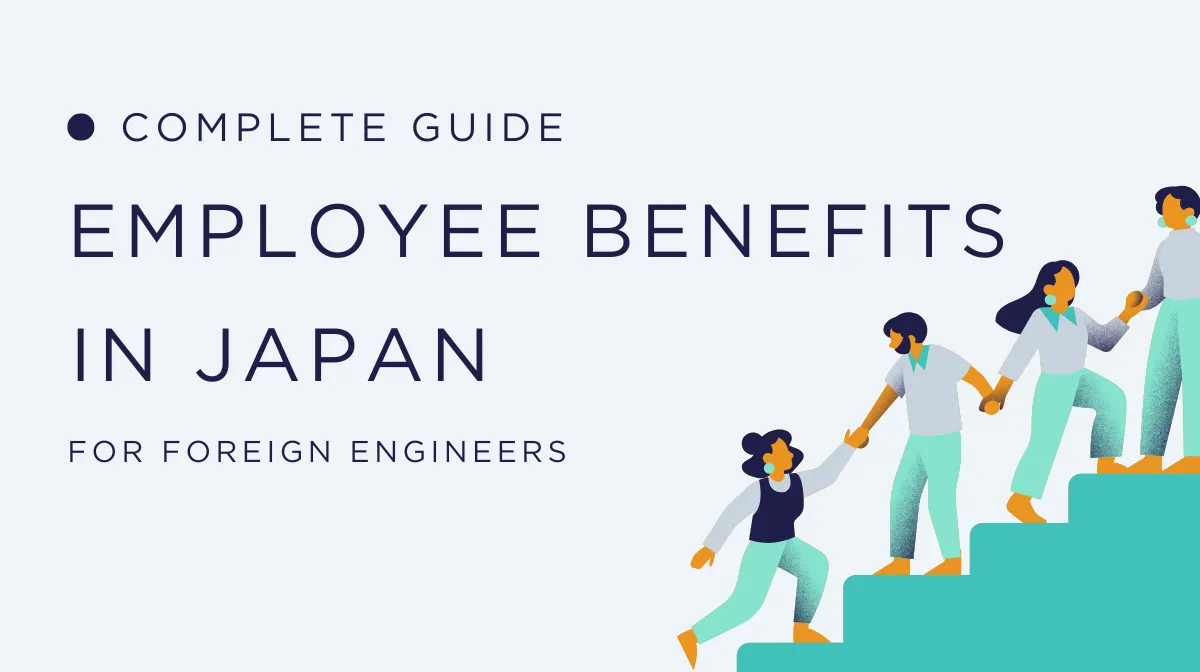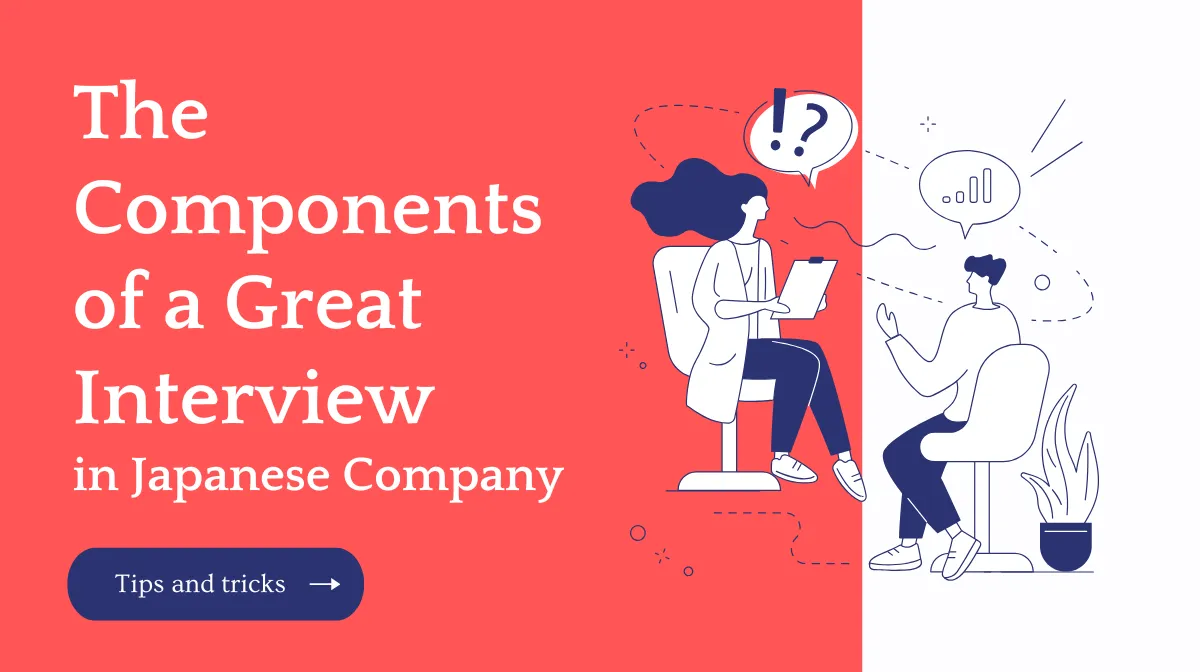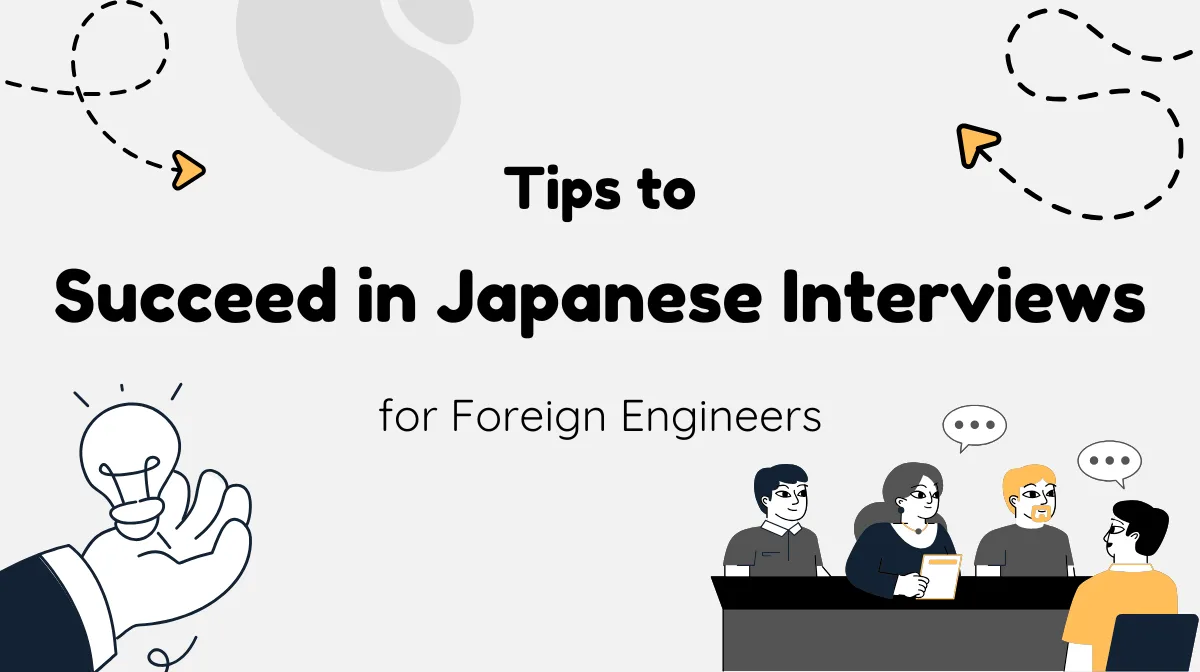For foreign engineers working in Japan, understanding the employee benefits system is crucial for improving quality of life. While Japan has unique benefit programs, proper utilization can provide significant financial advantages.
This article explains 15 types of benefits, both statutory and non-statutory, and introduces basic knowledge and utilization methods of Japanese employee benefits that foreign engineers should know from before arrival to after returning home.
- Key Japanese benefits for foreign engineers and how to maximize them.
- Application procedures for essential benefits at each employment stage.
- How to overcome language barriers and navigate the benefits system.
1. Basic Concepts and International Comparison of Japanese Employee Benefits

The Japanese employee benefits system reflects Japan’s unique employment culture that emphasizes long-term relationships between companies and employees.
Compared to other regions of the world, Japanese benefits tend to take a comprehensive approach that supports the entire life of employees.
Definition and Positioning of Employee Benefits in Japan
Employee benefits refer to the collective term for “compensation and services other than salary” provided by companies to employees and their families.
In Japan, employee benefits combines the words “welfare” (happiness and benefit) and “well-being” (healthy and prosperous life), and is positioned as a system to realize a healthy and happy life for employees.
The Japanese employee benefits system tends to support employees’ overall life, with a design based on the premise of long-term employment.
Differences in Employee Benefits Approaches Between Japan and Western/Asian Countries
There are significant differences in concept and scope between Japanese and overseas employee benefits systems.
- Japanese employee benefits are described as “company-integrated” tending to support all aspects of life with housing allowances and family allowances. They emphasize in-house community building like company trips and sports days, and are characterized by a seniority-based system premised on long-term employment.
- Western employee benefits are predominantly “individually-selected” with systems that emphasize individual choice like cafeteria plans and work-life balance. They also feature reward systems linked to short-term performance.
- Asian countries’ employee benefits feature family-oriented benefits seen in China and Korea, and government-led welfare policies like in Singapore. They are rapidly changing with economic development.
Importance for Foreign Engineers to Understand Japanese Employee Benefits
Understanding Japanese employee benefits is vital for foreign engineers for many reasons, including maximizing financial benefits, building a secure work environment, impacting career development, promoting cultural integration, and ensuring smooth transition when returning home.
- Understanding health insurance and pension systems… reduces concerns about illness and future uncertainties
- Utilizing self-development support and qualification acquisition support systems… helps enhance specialization
- Company events and other benefits… deepen understanding of Japanese workplace culture
- Understanding international handling of pensions and insurance… makes procedures smoother when returning home
Understanding and utilizing Japan’s unique employee benefits system is key to greatly improving quality of life in Japan and workplace satisfaction.
2. Rights of Foreign Employees in Japanese Employee Benefits

Japanese labor law protects the rights of workers regardless of nationality.
Foreign engineers have the right to receive the same employee benefits as Japanese employees, although some may differ depending on residence status and employment type.
Basic Benefits Equally Available to Foreign Engineers
Foreign engineers working in Japan have the right to receive the same employee benefits as Japanese employees in principle. This is a basic right protected by Japanese labor law.
With the “Part-time and Fixed-term Employment Act” and “Worker Dispatch Act” enacted in April 2020, the principle of equal pay for equal work has been strengthened, legally guaranteeing the right to receive equal treatment including benefits regardless of employment type or nationality if the job content is the same.
Reference: Ministry of Health, Labour and Welfare: Employment/Working Conditions for Foreign Workers(Japanese)
Differences and Considerations in Benefits Based on Visa Status
Employee benefits for foreign engineers may differ partly depending on visa type and period of stay.
Engineer/Specialist in Humanities/International Services Visa
You can receive the same benefits as Japanese employees in principle, but procedures for changing residence status are required when changing employers.
Particularly important is that some benefits may not apply in cases of short-term contracts or during probationary periods. Be sure to check the contract details before joining the company.
Highly Skilled Professional Visa
You may receive more favorable benefit conditions than usual, with preferential treatment for obtaining permanent residency.
Specified Skilled Worker Visa
Benefit content differs by industry, and you can receive life support based on support plans.
Short-term Residents (e.g., Interns)
Some benefits may be restricted, requiring special attention to pensions and insurance.
Labor Laws and Rights Protection Foreign Engineers Should Know
Foreign engineers working in Japan are protected by Japanese labor laws.
Main Laws and Rights to Know
Labor Standards Act (regulations on working hours, breaks, overtime pay, etc.) Labor Contract Act (protection from unfair dismissal and obligation to clarify working conditions) Equal Employment Opportunity Act (prohibition of gender discrimination) Part-time and Fixed-term Employment Act (equal pay for equal work principle) Foreign Worker Employment Management Guidelines (ensuring proper employment and working conditions for foreign workers), etc.
Reference: Ministry of Health, Labour and Welfare: Labor Standards Act : Labor Contract Act : Equal Employment Opportunity Act : Part-time/Fixed-term Employment : Foreign Worker Employment Management(all Japanese)
Consultation Resources in Case of Problems
Labor Standards Inspection Office Foreign Workers Consultation Support Center Embassy/Consulate of your country with offices in Japan Labor Consultation Hotline for Foreigners Dedicated consultation service for foreign employees (if established at your workplace)
Reference: Ministry of Health, Labour and Welfare: National Labor Standards Inspection Offices : Consultation Dial Immigration Services Agency: Support Centers(all Japanese)
■日本でエンジニアとしてキャリアアップしたい方へ
海外エンジニア転職支援サービス『 Bloomtech Career 』にご相談ください。「英語OK」「ビザサポートあり」「高年収企業」など、外国人エンジニア向けの求人を多数掲載。専任のキャリアアドバイザーが、あなたのスキル・希望に合った最適な日本企業をご紹介します。
▼簡単・無料!30秒で登録完了!まずはお気軽にご連絡ください!
Bloomtech Careerに無料相談してみる
3. Six Types of Statutory Benefits and Application Methods for Foreign Engineers

“Statutory benefits” are employee benefits that companies are obligated to implement by law.
Foreign engineers working in Japan are in principle eligible for all statutory benefits. This section explains the overview of each system and points that foreign employees should especially note.
Health Insurance: Enrollment Procedures and Points for Foreign Engineers Visiting Medical Institutions
Japan’s health insurance system is an important foundation for foreign engineers to work with peace of mind in Japan. If working more than 20 hours per week, in principle, all foreign workers are obligated to enroll in health insurance.
Health insurance premiums are about 10% of salary (split with the company), and the self-pay portion of medical expenses is normally 30% (the rest covered by insurance). The high-cost medical expense system provides reimbursement when medical expenses exceed a certain amount, and dependents (family) are also covered.
Points When Visiting Medical Institutions
- Bring your insurance card when visiting medical institutions
- Lists of multilingual medical institutions are available from local governments and JNTO (Japan National Tourism Organization)
- For emergency consultations, use #7119 (Emergency Consultation Center) or #8000 (Children’s Medical Consultation)
- The “JMIP” medical institution search site supporting foreign languages can be utilized, etc.
Health insurance cards are issued by the company at the time of employment, but notification is necessary when changing address.
Reference: Ministry of Health, Labour and Welfare: National Health Insurance System : Medical Institution List
Employees’ Pension Insurance: Enrollment Obligation and Future Pension Receipt/Lump-sum Withdrawal
Employees’ pension is part of Japan’s public pension system, and foreign engineers are also compulsorily enrolled, similar to health insurance.
The premium is about 18% of salary (split with the company), and qualification for benefits generally requires at least 10 years of enrollment. It is also possible to combine pension enrollment periods between Japan and countries with which Japan has agreements.
“Lump-sum Withdrawal Payment” Especially Important for Foreign Engineers
If you have been enrolled in the Japanese pension system for more than 6 months and do not have pension entitlement, you can claim this within 2 years after leaving Japan.
The amount of the lump-sum withdrawal claim varies depending on the enrollment period, but part of the premiums paid (up to 3 years’ worth) will be returned.
However, for nationals of countries that have pension agreements with Japan (USA, Germany, UK, etc.), totalizing pension periods may be more advantageous in some cases, so check in advance.
The procedure requires submission of a “Lump-sum Withdrawal Payment Claim Form,” which can be downloaded in multiple languages from the Japan Pension Service website.
Reference: Japan Pension Service: Employees’ Pension Insurance
Long-term Care Insurance: Obligations and Usage Methods for Foreign Employees Aged 40 and Above
Long-term care insurance is a system for those aged 40 and above, and foreign engineers are no exception.
Premiums for ages 40-64 are collected together with health insurance premiums (deducted from salary), and the target is foreign employees aged 40 and above with residence status (expected to stay for more than 3 months). If you receive certification of need for long-term care, you can use long-term care services.
Points to Know About Long-term Care Insurance
- Foreign employees aged 40 and above working in Japan are compulsorily enrolled
- The system can also be used when caring for foreign relatives in Japan
- If language support is needed, you can consult each municipality’s consultation service for foreigners, etc.
Enrollment in long-term care insurance is automatic, so no special procedures are required, but to use services, you must apply for certification of need for long-term care at the municipal office of your residence.
Reference: Ministry of Health, Labour and Welfare: Long-term Care Insurance
Employment Insurance: Unemployment Benefits and Re-employment Support for Foreign Engineers
Employment insurance is a system that provides livelihood security and re-employment support in case of unemployment, and foreign engineers are also eligible.
The premium is about 0.9% of salary (mostly borne by the company), and enrollment conditions are expected employment for 31 days or more and working more than 20 hours per week. Benefits include basic allowance (unemployment benefits), re-employment allowance, etc.
Points About Employment Insurance
- You can receive unemployment benefits like Japanese people while within your period of stay after leaving employment
- In principle, you need an insured period of 12 months or more in the past 2 years for benefits
- Job-seeking activities at Hello Work (Public Employment Security Office) are required
- Re-employment support programs for technical foreign workers are also implemented in some regions, etc.
To receive unemployment benefits, you must go to Hello Work with your separation certificate and necessary documents, apply for job seeking, and undergo procedures for determining benefit qualification. For foreign engineers, confirmation of residence status is also necessary.
Reference: Ministry of Health, Labour and Welfare: Employment Insurance System
Workers’ Accident Compensation Insurance: Compensation for Work-related Accidents and Claim Methods for Foreign Employees
Workers’ accident compensation insurance is a compensation system for accidents and injuries during work or commuting, with premiums borne entirely by the employer.
Foreign engineers are of course covered. All workers regardless of residence status (including illegal workers) are covered, and compensation includes medical expenses, compensation for absence from work, disability compensation, survivor compensation, etc. The application window is the Labor Standards Inspection Office.
Points About Workers’ Accident Compensation Insurance
- Workers’ accident compensation applies regardless of residence status or employment type
- If language support is needed, you can consult the consultation corner for foreign workers
- Death from overwork and health disorders specific to technical positions (such as VDT syndrome) may also be eligible for workers’ compensation
- If continued treatment is needed after returning home, benefits may be received even overseas in some cases, etc.
Workers’ accident compensation insurance applications are basically made by the company, but if the company refuses to apply, the worker can directly apply to the Labor Standards Inspection Office.
There are many complex procedures, so seek support from consultation services for foreigners as needed.
Reference: Ministry of Health, Labour and Welfare: Workers’ Accident Compensation
Child and Childcare Contribution: Childcare Support System for Foreign Employees
The child and childcare contribution is a system that serves as a source of funding for child allowances, etc., with premiums borne only by employers.
Families of foreign engineers are also eligible for benefits such as child allowances. Child allowances are 10,000-15,000 yen per month for children before completing junior high school, and children with an address in Japan (regardless of nationality) are eligible.
Applications are made at the municipal office of residence.
Points About Child and Childcare Contribution
- Those with residence status of “Designated Activities” or “Short-term Stay” are excluded
- Children must reside in Japan
- Childbirth lump-sum allowance (about 420,000 yen from health insurance) is also available for childbirth in Japan
- Daycare applications can also be made in the same way as Japanese people, etc.
Child allowance applications must be made within 15 days of the child’s arrival in Japan. Some municipalities provide multilingual guidance, so check this.
4. Nine Types of Non-statutory Benefits Especially Important for Foreign Engineers

Non-statutory benefits are those provided voluntarily by companies and vary greatly from company to company.
This section explains the characteristics and utilization methods of non-statutory benefits that are particularly important for foreign engineers.
Housing-related: Utilization of Housing Allowances and Company Housing Systems, and Housing Support for Foreign Workers
Securing housing in Japan is a major challenge for foreign engineers. Make good use of housing-related benefits provided by companies.
Housing allowances tend to be higher in large companies. Application procedures typically involve submitting necessary documents (copies of rental contracts, etc.) to the HR department at the time of joining the company or when moving.
Main Housing-related Benefits
- Housing allowance (about 5,000-50,000 yen per month)
- Company housing/dormitories (rent subsidies or provision at low rent)
- Leased company housing (company leases property and provides it)
- Initial cost subsidies (subsidies for deposit, key money, agency fees, etc.)
- Housing loan support (in-house financing system, preferential interest rates), etc.
Examples of Special Support for Foreign Engineers
- Introduction of available properties
- Company guarantee or provision of joint guarantor for rental contracts
- Introduction of multilingual real estate brokerage services
- Arrangement of properties with furniture and appliances, etc.
Commuting-related: Application for Commuting Allowances and How to Use Public Transportation
Many Japanese companies provide commuting allowances, which is a significant benefit for foreign engineers.
The average commuting allowance is about 8,500 yen per month but varies greatly depending on the distance between residence and workplace.
Basics of Commuting Allowances
- Actual expenses are provided (with limits, up to about 50,000 yen per month is tax-free)
- Covers public transportation commuter pass fees, gasoline costs, etc.
- Application method is through the HR department at the time of joining or moving
Points About Commuting Allowances
- The commuting route is basically the most reasonable route (confirm in advance if there are multiple routes)
- Commuter passes provide substantial savings (three types: 1 month, 3 months, 6 months)
- Convenience is improved with IC cards (Suica, PASMO, etc.)
- Some companies provide allowances even for bicycle commuting, etc.
Meal-related: Employee Cafeterias and Meal Subsidy Systems, and Religious Considerations
There are various differences in meal-related benefits depending on the company, so it’s good to check in advance.
To receive meal-related allowances, some companies require application in advance or submission of meal receipts during monthly settlements.
Examples of Meal Subsidies
- Employee cafeterias (meals available at subsidized low prices)
- Meal allowances (about 5,000 yen per month or more)
- In-house cafes/break areas (providing free or discounted beverages, etc.)
- Food delivery discounts (discounts through corporate contracts)
- Food purchase subsidies (discounts at affiliated supermarkets), etc.
Issues and Responses Specific to Foreign Engineers
- Increasing number of companies with halal food, vegetarian, vegan options
- Some companies offer options that consider religious dietary restrictions
- Even if there is no employee cafeteria, some may have affiliations with nearby restaurants or meal vouchers
- Companies with high proportions of foreigners often provide international menus, etc.
Health/Medical-related: Language-supported Health Examinations and Medical Services
Health/medical-related benefits, especially in large companies, provide comprehensive services, with procedures typically conducted through the HR department or health management office.
Examples of Health/Medical-related Benefits
- Statutory health examinations (at least once a year, fully paid by the company)
- Comprehensive medical checkup subsidies (often for those 35 and older, 20,000-50,000 yen subsidy)
- Medical expense subsidies (company’s own medical insurance or partial subsidy of medical expenses)
- Mental health care (counseling services)
- Sports club corporate memberships (monthly fee discounts, about 20-50%), etc.
Examples of Support for Foreign Engineers
- Health examinations at medical institutions with English support
- Multilingual online medical consultations
- Provision of medical interpretation services for foreigners
- Support for coordination with international health insurance, etc.
Self-development-related: How to Utilize Language Learning Support and Qualification Acquisition Support
There are various self-development-related benefits, but in many cases, prior application is required to use self-development support.
The typical process is to apply to the HR department, receive approval, and then take courses or exams.
Examples of Self-development-related Benefits
- Qualification acquisition support (examination fee subsidies, congratulatory money for passing, 10,000-100,000 yen)
- Correspondence education courses (tuition subsidies, 50-100%)
- Language learning support (English/Japanese classes, online learning tools)
- In-house library (lending of technical books and learning materials)
- External seminar participation (cost subsidies or permission to participate during working hours), etc.
Characteristic Support for Foreign Engineers
- Japanese language learning support (JLPT preparation courses, Japanese classes)
- Business Japanese acquisition programs
- Cultural understanding training
- Mentoring system (pairing with Japanese employees), etc.
Childcare/Nursing Care-related: Support Systems for Balancing Childcare and Work in a Foreign Country
Childcare/nursing care-related benefit budgets are highly valuable support for employees who need them.
Usage requires planned application (for example, 1-2 months before the expected delivery date).
Examples of Childcare/Nursing Care-related Benefits
- Childcare leave systems beyond legal requirements (maximum 3 years, legal requirement is generally 1 year)
- Shorter working hours (until 3rd grade of elementary school, etc.; legal requirement is until age 3)
- Babysitter cost subsidies (about 10,000-50,000 yen per month)
- In-house nurseries (established in some large companies)
- Provision of childcare support information (childcare concierge services, etc.), etc.
Issues and Support Specific to Foreign Engineers
- Support for obtaining residence status for family
- Provision of multilingual daycare information
- Visa support when inviting family from home country
- Introduction to communities for international marriage families, etc.
Leisure/Recreation-related: Japanese Cultural Experiences and Exchange Opportunities
There are also leisure/recreation-related benefits.
Participation applications are typically made through the company portal or HR department, and popular events are often first-come-first-served, so be careful not to miss announcements.
Examples of Leisure/Recreation-related Benefits
- Company trips (once a year, domestic/international, fully or partially paid by the company)
- In-house events (year-end parties, sports days, cultural festivals, etc.)
- Resort facilities (available at discounted rates or free)
- Entertainment facility tickets (providing tickets for movies, amusement parks)
- Club activity support (subsidies for sports, cultural activities), etc.
Examples of Distinctive Programs for Foreign Engineers
- Japanese cultural experience tours (tea ceremony, calligraphy, kimono dressing, etc.)
- International days (cultural introduction events from various countries)
- Language exchange meetings
- Homestay experiences, etc.
Asset Formation-related: Asset Formation Strategies for Foreign Engineers
Asset formation-related benefits include various options such as asset-building savings, employee stock ownership plans, and retirement benefit systems, some of which you can choose to join yourself.
Usage applications are made at the time of joining the company or during the recruitment period for each system.
Examples of Asset Formation-related Benefits
- Asset-building savings system (savings through salary deduction, tax-exempt brackets available)
- Employee stock ownership plan (system to purchase company stock at a discount)
- Retirement benefit system (defined benefit corporate pension, defined contribution pension, 401k)
- Group life insurance (can be enrolled at discounted premiums)
- Housing acquisition support (low-interest loans, in-house loan system), etc.
Points to Know
- Importance of asset formation planning according to planned duration of stay in Japan
- Need to understand taxation related to international asset movement
- Effectiveness of hybrid strategies for asset formation in both home country and Japan
- Importance of confirming possibilities for pension asset transfers across borders, etc.
Congratulatory/Condolence/Disaster-related: Crisis Management Support for Foreign Employees
Application procedures for congratulatory/condolence/disaster-related benefits involve contacting the HR department immediately after the event occurs and submitting necessary documents (marriage certificate, birth certificate, etc.).
Examples of Congratulatory/Condolence/Disaster-related Benefits
- Marriage celebration money (about 20,000-50,000 yen)
- Childbirth celebration money (about 10,000-30,000 yen)
- Condolence money (about 10,000-100,000 yen)
- Disaster relief money (provided according to disaster situation)
- Special leave (granted for marriage, childbirth, bereavement, etc.), etc.
Special Support for Foreign Engineers
- Provision of disaster information with language support
- Support for contacting family in home country in emergencies
- Subsidy for international call charges (in case of family bereavement, etc.)
- Support for coordination with embassies/consulates in Japan
- Emergency travel support when returning home, etc.
■日本でエンジニアとしてキャリアアップしたい方へ
海外エンジニア転職支援サービス『 Bloomtech Career 』にご相談ください。「英語OK」「ビザサポートあり」「高年収企業」など、外国人エンジニア向けの求人を多数掲載。専任のキャリアアドバイザーが、あなたのスキル・希望に合った最適な日本企業をご紹介します。
▼簡単・無料!30秒で登録完了!まずはお気軽にご連絡ください!
Bloomtech Careerに無料相談してみる
5. Employee Benefits Utilization Guide for Foreign Engineers

To effectively utilize employee benefits throughout your working period in Japan, appropriate responses at each stage from preparation before arrival to procedures when returning home are important.
This section provides a guide for foreign engineers to maximize the utilization of employee benefits in chronological order.
Before Arrival: Benefits to Know and Preparation Items
Understanding employee benefits before arriving in Japan allows for a smooth start to life in Japan.
Many companies provide pre-arrival orientation or information packages for foreign engineers. Check with HR in advance and gather necessary information.
Points to Check Before Arrival
- Health insurance and medical access
(medical insurance until insurance applies immediately after arrival and information on medical institutions if you have a pre-existing condition) - Housing support
(availability and conditions of company housing/dormitories, amount and application method of housing allowance, range of initial costs covered by the company) - Relocation support
(range of moving expense subsidies, provision/purchase subsidies for furniture and appliances) - Language support
(availability of Japanese language training programs, multilingual status of company documents and guidance), etc.
Documents to Prepare Before Arrival
- English academic credentials and work experience certificates
- English medical examination certificate
- International driver’s license (if needed)
- Identification for opening a bank account
- Marriage certificate (if coming to Japan with family), etc.
Upon Joining the Company: Application Procedures for Benefits to Definitely Check
Various benefit application procedures are concentrated at the time of joining the company. It is important to apply appropriately within deadlines.
During orientation upon joining the company, there will be explanations about benefits from the HR department.
Don’t hesitate to ask questions about unclear points, and it’s good to get advice from colleagues and senior employees.
Application Procedures Upon Joining
- Social insurance-related
(health insurance and employees’ pension enrollment procedures, dependent certification application if you have dependents) - Housing-related
(housing allowance application, company housing/dormitory move-in application) - Commuting-related
(notification of commuting route/method, commuting allowance application) - Bank account
(registration of salary deposit account, application for asset-building savings, etc.), etc.
Do Not Neglect Important Deadlines
Important deadlines include the need to complete many procedures within 1-2 weeks after joining the company, dependent applications for health insurance should be done immediately after arrival, and resident registration and residence card acquisition must be done within 14 days of arrival.
During Employment: Employee Benefits to Review Regularly
During employment, it is also important to actively utilize benefits according to changes in life stages.
Many companies offer opportunities for benefit review and additional applications once a year.
Check the company portal and bulletin boards frequently to avoid missing deadlines.
Benefits to Check Regularly
- Self-development support
(make plans at the beginning of the fiscal year, secure budget, apply for qualification acquisition plans) - Health management
(annual health examination, comprehensive medical checkup application) - Career development
(check internal job posting system, opportunities for transfer to international divisions) - Asset formation
(confirm retirement benefit system content, review asset-building savings), etc.
Utilization Points by Life Event
- When getting married
Apply for marriage celebration money and special leave - When having a child
Apply for childbirth lump-sum allowance and childcare leave - When moving
Submit change of address notification and reapply for housing allowance - When family comes to Japan
Apply for dependent certification, etc.
When Changing Jobs: Benefit Succession and Points to Note
When changing jobs, it is also important to consider benefits sufficiently.
Negotiation points with the new employer include seeking benefits equivalent to or better than those currently enjoyed, comparing financial benefits such as housing and commuting allowances, and negotiating coverage of moving expenses associated with the job change.
Checkpoints When Changing Jobs
- Social insurance-related
(return of health insurance card and reissuance, continued use of pension book) - Retirement benefits/pension
(handling of corporate pension, transfer procedures for defined contribution pension) - Housing-related
(timing of moving out from company housing/dormitory, final month of housing allowance) - Paid leave
(possibility of taking remaining paid leave, setting of retirement date), etc.
Points to Note Regarding Residence Status
- For Engineer/Specialist in Humanities/International Services visas, notification to the Immigration Services Agency is required within 14 days after changing jobs
- If residence period renewal is near, it’s reassuring to renew before changing jobs
- Confirm the visa sponsorship response of the new employer in advance, etc.
When Returning Home: Handling of Pension and Insurance, and Procedures
When returning home from Japan, don’t forget to complete procedures related to pension and insurance. The application for the lump-sum withdrawal payment will be made after returning home.
It’s good to prepare necessary documents (claim form, passport copy, bank account certificate, etc.) in advance so that you can apply immediately after returning home.
Main Procedures When Returning Home
- Pension-related
(application for lump-sum withdrawal payment, acquisition of pension enrollment period certificate) - Health insurance
(acquisition of health insurance qualification loss certificate, return of health insurance card) - Tax-related
(preparation for tax refund declaration, setting of tax agent) - Resident tax
(procedures for lump-sum payment of resident tax), etc.
Pre-departure Checklist
- Start preparations 1-2 months before scheduled departure
- Submit moving-out notification at municipal office
- Decide handling of bank account
- Cancel utilities and mobile phone
- Prepare documents for lump-sum withdrawal payment, etc.
6. Overcoming Language Barriers: Tips for Understanding and Negotiating Benefits

Language barriers can be a major obstacle for foreign engineers in understanding and maximizing employee benefits.
This section introduces tips for overcoming language barriers and communicating effectively about benefits.
How to Communicate Effectively with HR About Benefits
Here are tips for effectively communicating with HR about benefits, overcoming language barriers.
Effective Communication Methods
Preparation and planning (organize questions in advance, compile them in writing if possible, request an interpreter in advance if needed)
Clear communication (ask for explanations in simple language, don’t hesitate to ask about points you don’t understand, take notes on important points)
Follow-up (summarize conversation content in a confirmation email, clearly communicate response deadlines if any, set up a second meeting if necessary), etc.
Many companies have HR staff or buddy systems dedicated to foreign employees.
Utilizing such dedicated staff can enable smooth communication.
Information Sharing and Consultation Resources in Foreign Communities
Communities of foreign engineers working in Japan are valuable resources for sharing information and consultation about benefits.
Useful communities and consultation resources include online communities, public support institutions (Foreign Workers Consultation Support Centers, local government consultation services, etc.), and industry organizations (JETRO), etc.
Tips for Utilizing Communities
Check past posts before asking questions, aim for specific and concise questions, verify information obtained against your company’s systems, share your experiences and contribute to the community, etc.
Especially in urban areas, exchange meetings and meetups for foreign IT engineers are held regularly. Participating in such events allows you to build networks and gain valuable information exchange opportunities.
Reference: Immigration Services Agency: General Information ・ Japan External Trade Organization (JETRO)
7. Japanese Company Benefit Cases: Companies Popular Among Foreign Engineers

Various Japanese companies provide distinctive benefits for foreign engineers. This section introduces cases of companies highly evaluated by foreign engineers and analyzes their characteristics.
Large IT Companies Providing Comprehensive Benefits with Multilingual Support
Large IT companies generally have extensive benefits for foreign engineers.
Case of a Representative Large IT Company
At this company, foreign engineers make up about 30% of the total, with many promoted to managerial positions. They are proactive in establishing a multilingual environment, constructing an environment where employees not proficient in Japanese can work without inconvenience.
Multilingual support features include bilingual (Japanese/English) company documents and notifications, 24-hour multilingual medical consultation service, in-house counselors available in English, etc.
Special support for foreign employees includes complete support for visa acquisition/renewal, returning home bonus system (one month’s basic salary for more than 3 years of service), international assignment program (opportunities to travel between home country and Japan), etc.
Startup Companies Introducing International Benefit Systems
Among growing startup companies, there is an increasing number introducing flexible and international benefit systems.
Case of a Startup Company
This company tends to provide attractive benefits apart from salary, and for foreign engineers in particular, flexible working styles and international career development opportunities are emphasized.
Flexible working styles include full remote work options, flextime system (no core time), unlimited vacation system (based on performance), etc.
International benefits include global health insurance (usable overseas), stock option grants, full subsidy for international conference participation fees, etc.
Unique Benefit Cases Specialized for Foreign Employee Needs
Among mid-sized companies, some are developing unique benefits that respond to the specific needs of foreign employees.
Case of a Mid-sized Company
This company includes representatives of foreign employees in committees when designing benefits, devising ways to reflect actual needs. Their attitude of addressing the true needs of employees with different cultural backgrounds is appreciated.
Cultural support includes allowing taking holidays for religious celebrations, providing prayer spaces, and mandatory multicultural understanding training (for all employees), etc.
Life support includes family adaptation programs for Japan, subsidies for international school costs for children, and permanent residency acquisition support programs, etc.
Advanced Cases Merging Global Standards with Japanese Systems
Companies offering benefits that merge the strengths of Japanese companies with global company systems are also emerging.
Case of a Company Merging Both
This company has adopted a “hybrid model” that balances the stability of Japanese companies with the flexibility and performance-based approach of global companies. It also receives high evaluations from foreign engineers as “obtaining both the benefits of working in Japan and building a global career.”
Japanese elements include the stability of lifetime employment, thorough health management (comprehensive medical checkups, health consultations), and promotion of in-house community activities, etc.
Global elements include performance-linked bonuses, elective benefits (cafeteria plan), and sabbatical leave system (3 months after 7 years of service), etc.
8. Latest: Changes in Employee Benefits Affecting Foreign Engineers

With recent social changes and work style reforms, employee benefits are also changing significantly. This section explains the latest trends and their impact on foreign engineers.
Post-COVID Work Style Reforms and Internationalization of Benefits
Post-pandemic work style reforms are bringing significant changes to benefits for foreign engineers.
Major changes include standardization of hybrid work (combination of office work and remote work, flexible working hours, strengthening of performance-based evaluation), digitalization of benefits (online health consultations, digital benefit platforms, healthcare programs linked with wellness apps), etc.
Post-COVID benefit trends gaining attention include strengthening mental health care, systems supporting digital nomads, and initiatives emphasizing well-being (comprehensive happiness), etc.
Reference: Ministry of Health, Labour and Welfare
Remote Work and Adjustment of International Benefits
With the spread of remote work, adjustment of benefits to accommodate cross-border working styles is progressing.
Challenges and responses to international remote work include visa and tax challenges (utilization of workation visas, provision of international tax consulting, introduction of virtual expatriate systems), internationalization of benefits (provision of international health insurance, flexible working systems across time zones, globally unified benefit portals), etc.
Noteworthy new systems include the “work from anywhere” system (choice of work location regardless of domestic or international), etc.
These changes are also increasing options for foreign engineers to work for Japanese companies without physically being stationed in Japan.
Importance of Benefits in Competition for Foreign Talent
As global competition for talent intensifies, benefits are becoming an important differentiating factor.
Benefit strategies to enhance competitiveness include comprehensive packages (comprehensive benefits in addition to competitive salaries, systems supporting the entire family, balance of monetary and non-monetary rewards), ensuring transparency (clear explanation of benefits during the interview stage, presentation of benefits in an internationally comparable form, visualization of the monetary value of benefits), etc.
Benefit competition in the IT industry includes developing benefits that don’t pale in comparison to tech giants, appealing to Japan’s unique attractions (safe and secure environment, high-quality medical care, etc.), long-term incentives to increase retention rates of foreign talent, etc.
9. Tips for Utilizing Employee Benefits for Foreign Engineers Working in Japan

This section introduces practical advice for foreign engineers to maximize Japanese employee benefits.
By recognizing cultural differences and strategically utilizing benefits, enrich your life and career in Japan.
Tips for Maximizing Benefits by Overcoming Cultural Differences
To maximize the Japanese benefit system, it’s important to understand cultural differences and take appropriate approaches.
Practical approaches include actively participating in orientation upon joining the company and asking questions, asking HR to explain technical terms and complex systems, relying on senior foreign employees as mentors, participating in in-house foreign communities if available, etc.
Even if you feel cultural barriers, the key is to not give up and strive to understand and utilize the benefit system.
Many Japanese companies are positive about supporting foreign employees, but proactive approaches from employees are also necessary.
Positioning of Benefits in Long-term Career and Life Planning
In planning long-term careers and lives in Japan, it’s important to strategically utilize benefits.
Points for working long-term in Japan include investigating possibilities for connecting Japanese social security systems with those of your home country, evaluating the long-term value of benefits unique Points for working long-term in Japan include investigating possibilities for connecting Japanese social security systems with those of your home country, evaluating the long-term value of benefits unique to Japanese companies, and reviewing benefits according to changes in life stages, etc.
Many foreign engineers end up staying in Japan longer than initially planned, so it’s important to evaluate and utilize benefits from a long-term perspective, not just a short-term one.
A comprehensive approach considering career, assets, and quality of life balance is key to success.
10. Working Comfortably as a Foreign Engineer by Understanding Japanese Benefits
The Japanese employee benefits system is a valuable resource for foreign engineers. From health insurance to housing allowances and self-development support, proper utilization can greatly improve quality of life and workplace satisfaction.
Even with cultural differences and language barriers, it’s important to actively gather information and understand your rights.
To enrich your experience in Japan, please use the knowledge and utilization methods of benefits introduced in this article for your own career and life planning.
Recommended Related Reading
The following articles introduce interview preparation for Japanese companies, and how to write resumes and CVs, etc.



















